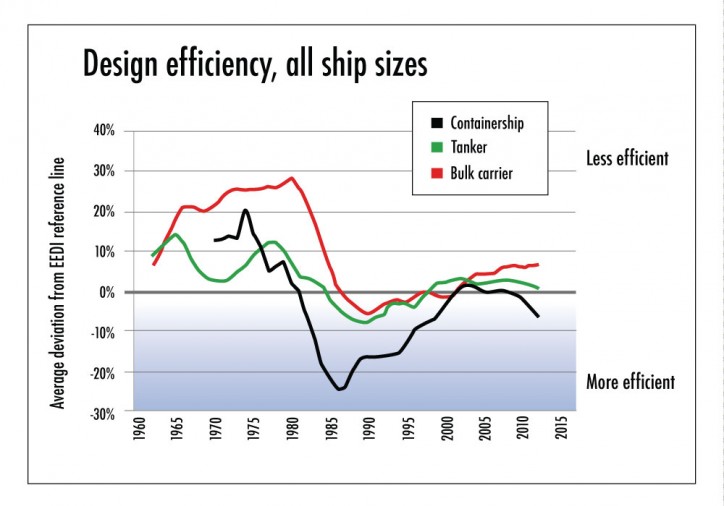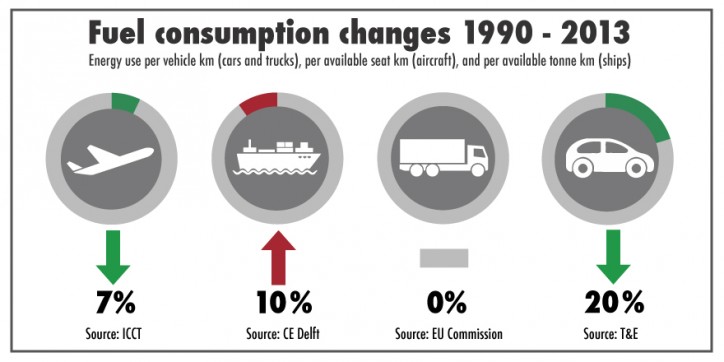According to a recent study all new ships constructed in 2013 displayed an average drop of 10% when regarding fuel efficiency in comparison to the ones manufactured in 1990. The study was commissioned and fully approved by Seas At Risk and Transport and Environment.

It clearly points to the fact that container carrying vessels constructed roughly 30 years ago have already on average beaten the Energy Efficiency Design Index standard that new vessels constructed in the year 2020 were to oblige to. The standard was introduced by the International Maritime Organization (IMO) and is due to be reviewed this following month.
This current study regarding the historical development of new ships’ design efficiency is actually the first of its kind to be commissioned by Seas At Risk and Transport and Environment. It has determined that container ships, tankers and bulk carriers constructed in 2013 display an average drop of 8, 8 and 12% when accounting for fuel efficiency in comparison to the vessels built back in 1990, a whole generation ago.

The results derived from the study greatly contradict all claiming that shipping has been improving its eco-friendly aspect on a permanent basis. The study also makes it clear that market forces are not able solely on their own to result in the construction of ships with a higher fuel-efficiency level. If you just look up the oil prices registered for the late 1980s and early portion of the subsequent 90s (a time when new vessels were historically accounted for the highest level of fuel efficiency) you will easily notice that they were about a quarter of the levels reported for the time period of 2008-2013 ($25 vs $100 per barrel, in current nowaday prices).
“I believe we have finally established the concrete fact that we can’t simply lean on rising fuel prices, market forces or merely the industry’s good intentions if we are to solve shipping’s climate issue. The right course of action is to lay out a preset and crystal-clear target regarding the reducing of ship greenhouse gas emissions and impose legally binding measures and various strict regulations,” commented John Maggs, Seas At Risk policy advisor and Clean Shipping Coalition president.
The IMO’s Energy Efficiency Design Index (EEDI) is to be properly reviewed at the Organization’s Marine Environmental Protection Committee (MEPC) meeting that is scheduled to take place in London this following month.
“The cat is out the bag ! While aircraft and cars have managed to seize and take advantage of a whole generation of technological improvements and innovations thus raising their fuel efficiency, ships have taken quite a few steps backwards for the larger part of the past 25 years. This current efficiency standard for all new ships designed by the IMO is in need of redesigning and further enhancing, if its aim is not bringing us to levels that were possible 25 years ago, that is,” commented Bill Hemmings, Transport & Environment clean shipping manager.
Source & Images: seas-at-risk.org